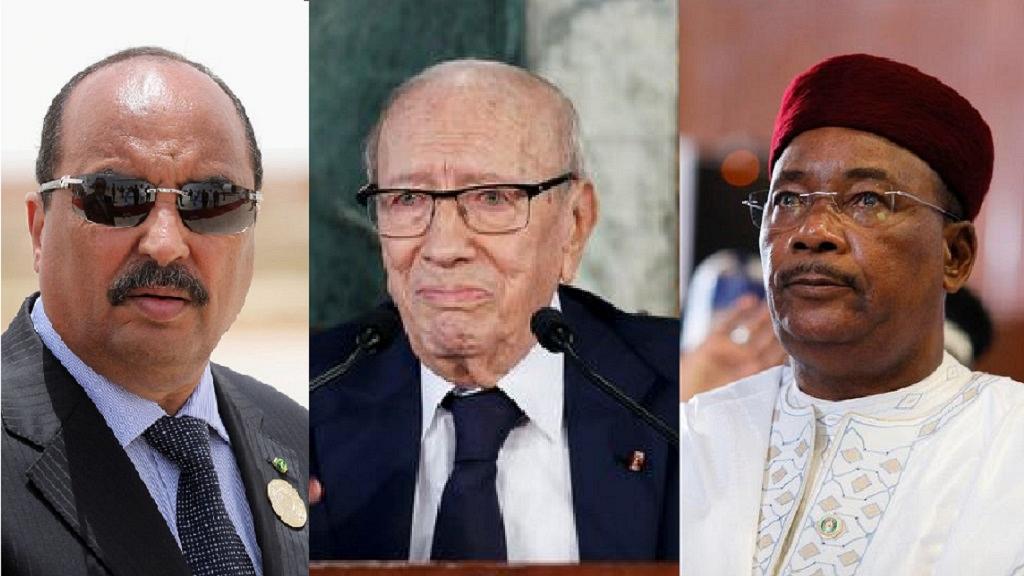
BY AFRICANEWS
About a half dozen African leaders have secured their long-term political futures after tweaking their respective constitutions to allow them remain viable to engage in elective politics.
In the north, Egypt’s Abdul Fattah Al-Sisi, down the Sahara Chad’s Idris Deby Itno, on the West African coast Togo’s Faure Gnassingbe.
Cameroon’s Paul Biya shows no signs of slowing down with a seventh consecutive term secured in 2018. Then there is Yoweri Museveni of Uganda, Paul Kagame of Rwanda and Denis Sassou Nguesso of Republic of Congo.
But whiles these long serving “servants” have usually hogged the media headlines with the schemes they employ to amend laws in their favour, there are a number of leaders who have left and others ready to retire.
In January this year, we published an article looking back at African leaders who left office either after losing elections or after serving their terms.
In this piece, we look at three leaders ready to leave office when their tenures expire. Mohammed Ould Abdul Aziz (Mauritania), Mahamadou Issoufou (Niger) and Beji Caid Essebsi (Tunisia).
Mohamed Ould Abdul Aziz
- Chamisa under fire over US$120K donation
- Mavhunga puts DeMbare into Chibuku quarterfinals
- Pension funds bet on Cabora Bassa oilfields
- Councils defy govt fire tender directive
Keep Reading
Came to office: After a coup d’etat in August 2008 Won elections: Restored democratic order and won two elections in 2009 and 2014 (for final term). Tenure expires: This year with the swearing in of a successor. Preferred candidate: Mohamed Ould Ghazouani, the former Minister of Defense. Best remembered for: A clampdown on opposition bloggers, active participation in the G5 Sahel force.
Beji Caid Essebsi
Came to office: December 2014 after the Arab Spring ousted Zine El Abidine Ben Ali. Tenure expires: When next elections are held in November, he is not contesting Preferred candidate: Neither Beji of his Nidaa Tunis party have named one. His current PM Youssef Chahed is leading a new party, Tahya Tounes. Best remembered for: Being Tunisia’s first democratically elected president.
“I will say frankly that I do not want to present for a second term because Tunisia has a lot of talents,” Essebsi said at a meeting in April of his party Nidaa Tounes in Monastir.
Mahamadou Issoufou
Came to office: 2011 after overthrow in 2010 of Mamadou Tandja. Won 2011 elections and secure final term in 2016. Tenure expires: 2021 when next polls are to be held. Preferred candidate: Mohamed Bazoum, the Minister of Interior Best remembered for: Playing key role in migration crisis. Participation in G5 Sahel block and Boko Haram combat.











